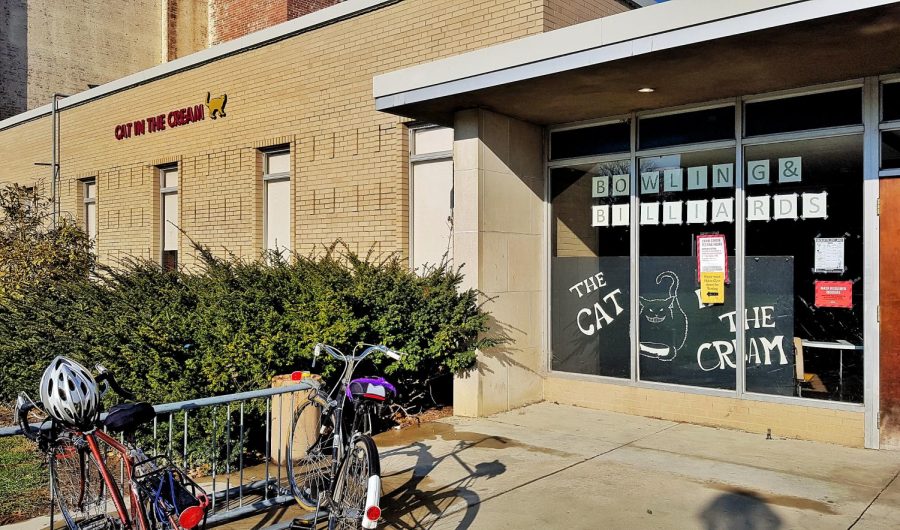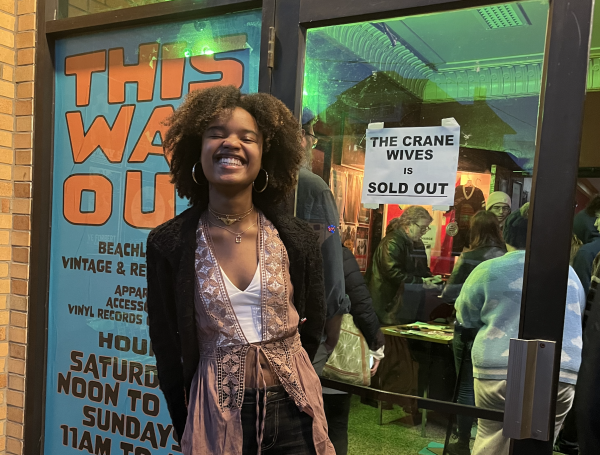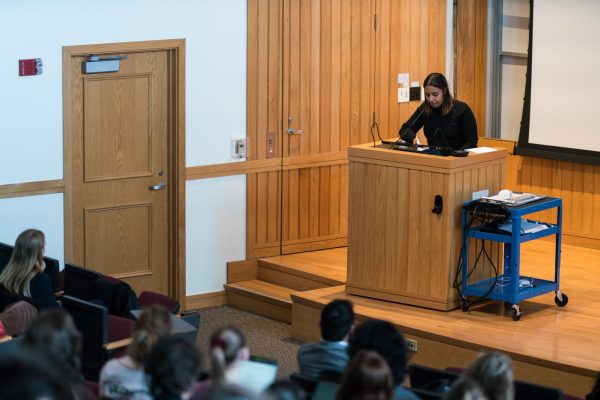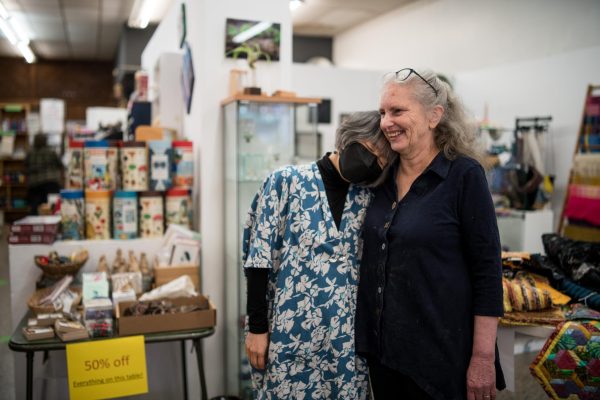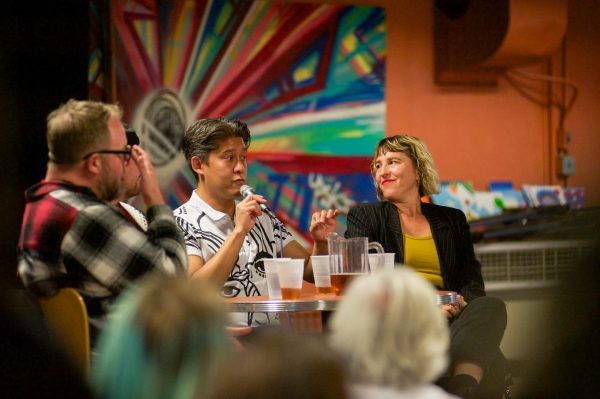Campus Music Venues Face Booking Obstacles During Pandemic
As live music returns to Oberlin venues with the relaxing of COVID-19 restrictions, bookers at both the ’Sco and the Cat in the Cream struggle to bring musicians willing to comply with the College’s COVID-19 protocols.
In contrast to the empty stages that defined so much of Oberlin’s live music scene during the height of the COVID-19 pandemic, this fall semester has brought the tradition of live performances back to campus. Despite recent full-capacity concerts at beloved College venues like the Cat in the Cream and the ’Sco, the return of live music hasn’t been without obstacles.
For the students who work at and promote these venues, the process of bringing musical acts to Oberlin has been riddled with hurdles. Especially given the uptick in COVID-19 cases on campus in recent weeks, strict adherence to the College’s ObieSafe policies is a challenge that promoters have had to work through while reaching out to artists and their management.
One of those promoters is College third-year Tali Braun. Braun, who has been working at the ’Sco since June, describes her booking job as something that’s constantly changing in order to anticipate and respond to Oberlin’s guidelines.
“Booking for the ’Sco is one of those things that’s evolved so much, even just from when I started working to now,” Braun said. “When I was first getting into my job, we didn’t even have much funding for bringing in artists. … When we reopened Splitchers somewhere around the third week of June, there wasn’t an indoor mask mandate. … By the time we held Angel Ultra Fest in the beginning of August, everyone was wearing masks inside again.”
This fluctuation in mask policies is an ordeal that College third-year Emelia Duserick, who has been working at the Cat in the Cream since July, has become accustomed to. And while these policies haven’t prevented Duserick from booking multiple shows this semester (including Squirrel Flower in October and Grace Ives, who will play at the Cat in the Cream this Friday at 8 p.m.), they are a source of discomfort in negotiations.
“Honestly, it does affect us in terms of having to let artists know that they do have to wear a mask,” Duserick said. “I don’t think we’ve lost anyone because of that, but it does impact the ways we’re communicating with artists and their management, because it’s not something you enjoy having to tell an artist, you know? When we’re trying to get them to perform here, they usually don’t really want to hear that stuff.”
At the ’Sco, frequent changes in mask policy have also created several chal- lenges for promoters trying to book acts to perform. Braun described an instance where an Oberlin mask policy requiring all performers, including singers, to be masked at all times while playing indoors nearly jeopardized a potential gig that she had booked.
“We were moving along with the planning and the contracts, and at one point I had to mention the fact that, as of that moment, artists had to be performing with masks if they were indoors,” Braun said. “Originally, the concert didn’t work out because the manager was like, ‘Sorry, I don’t think that’s going to be possible; the artist doesn’t want to wear a mask while performing,’ which was really just a bummer.”
Despite this, the artist, Kari Faux, ended up performing at the ’Sco in early November, once Oberlin relaxed mask mandates for those performing in front of an audience, as long as they were vaccinated and at least six feet away from the audience.
Alongside the mask policies, something else that Duserick cited as an obstacle with live shows is the limited ability to sell drinks and snacks to bring in revenue. The issue of finances, especially during the COVID-19 pandemic, has impacted live music at an immense scale, and it’s an issue that a lot of bookers at Oberlin are having to deal with as they attempt to revive the College’s live music scene.
One of those promoters is College fourth-year Shanthini Ode. Ode, who booked Shannon & The Clams in October, was hired by the ’Sco in 2019. She has a firsthand understanding of the ways in which the pandemic has reshaped artists’ expectations.
“Artists these days are definitely asking for a lot more to play colleges — sometimes double the price,” Ode said. “It makes sense, since they basically couldn’t tour for over a year, but it means that it’s harder for us to negotiate down prices. Funding from the College has changed, too, since the [Student Finance Committee] has changed how they’re budgeting for live acts, so it’s essentially a lot that the ’Sco has to work around.”
For the Cat in the Cream, the biggest financial setback has been their inability to serve their signature ooey-gooey chocolate chip cookies. For most of the fall semester, the Cat in the Cream hasn’t sold food or drinks during shows. This change has been difficult for the venue. As Duserick explained, the Cat in the Cream hasn’t been able to earn the sort of money that it was earning in the pre-pandemic era, and that has also changed the experience of going to a show.
“One of the main things about the Cat, what makes it such a unique ven- ue, is that it’s basically like a coffee shop during concerts,” Duserick said. “I’ve had people come up while I’ve been working, and ask me if they can get a drink or a Cat cookie, and because we’re not selling anything we have to apologize and say no to them, which is kind of sad to me because that’s what the Cat is known for.”
Despite this, Duserick remains optimistic for the future.
“Even though we’re not selling food or drinks during the show, last night when we had Slow Pulp at the Cat, our workers spent the show baking cookies so that we could sell cookies while everyone was clearing out at the end of the concert,” Duserick said. “It just shows how everybody is so dedicated to the Cat and ensuring that it succeeds and that we keep those traditions alive, that I think the Cat is in really good hands. I think we will build back in a way that’s better than before.”


